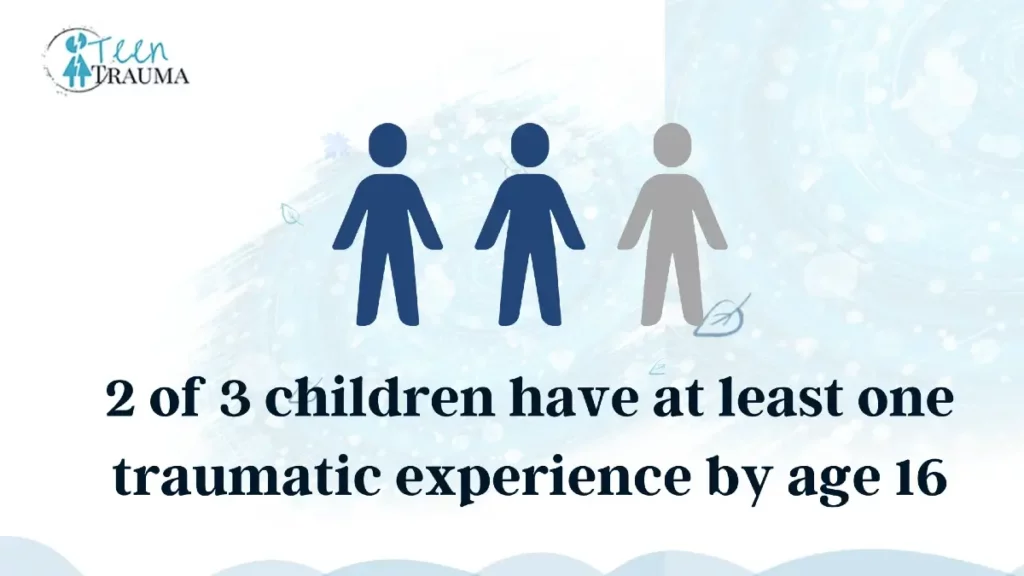5 Signs of Trauma in Teens You Need to Know
When a human experiences a dangerous or stressful situation, the body will release chemicals and hormones connected to the flight or fight response. This protection mechanism is vital to getting the person out of harm’s way. Unfortunately, the brain and body cannot tell the difference between chronic stress and immediate danger, and this can lead to trauma responses, especially in teenagers.
While there are many causes of trauma, and abuse is a common one, teens even from healthy homes can experience trauma through outside influences. Even ongoing political and world events that are traumatic in nature can lead to signs of PTSD and trauma in adolescents whose developing brains are not quite ready to process that trauma. Even witnessing violent events that are not directed at them can lead to trauma.
Teenage trauma is more common than you might think. According to the Substance Abuse and Mental Health Services Administration, more than two-thirds of children have at least one traumatic experience by age 16, and at least one in seven have experienced child abuse or neglect in the last year.
As a parent, you must be able to recognize the signs of trauma, so you can get your teen the right support. Without proper treatment, trauma can lead to a lifetime of emotional and mental health struggles, but there is treatment available to help your child heal and become healthy again.
The Three Types of Trauma
Teenagers, like all people, experience one of three types of trauma. These are:
- Acute trauma: Acute trauma occurs from one single incident.
- Chronic trauma: This trauma comes from repeated, prolonged exposure to the same traumatic event, such as bullying or domestic violence and abuse.
- Complex trauma: This form of trauma happens when the teen has varied traumatic events over a period of years, and those events are often invasive or interpersonal, such as abuse or severe neglect.
Regardless of the type of trauma your teenager experiences, you need to know the signs and symptoms, so you can get appropriate help. If your child is traumatized, especially if the trauma is chronic or complex, professional help is necessary.
5 Signs of Trauma in Teenagers
If you are noticing these classic signs of trauma, it may be time to seek trauma treatment from a professional treatment center.
1. Worry, Anxiety, and Fear
Trauma often causes a heightened sense of arousal. Teenagers struggling with trauma often have an overwhelming fear that something bad is going to happen again. They may struggle with anxiety and nervousness around normal life situations, but that anxiety and nervousness may be completely paralyzing. This anxiety can lead to avoidance of situations and places that remind them of the trauma, and some teens will suffer panic attacks.
2. Grief and Depression
Traumatic experiences can cause teens to suffer severe grief. This can even lead to depression. If the depression and grief extend for a long period of time past the event, then it is time to seek treatment.
3. Rage and Angry Outbursts
There is a clear connection between trauma and behavior. Teens suffering from trauma will often exhibit angry and aggressive behavior. Periods of rage and anger outbursts, even without provocation, are not uncommon. Parents often notice intense mood swings as their child can go from seemingly happy and settled to angry and raging quickly.
4. Lack of Feelings
Teens tend to go numb in response to trauma. They will find themselves withdrawing and isolating. Their communication will take on a monotone voice. Because the pain of the trauma is so intense, they prefer to feel nothing instead of going through that pain.
5. Problems with Sleep
Traumatized teens may have a disruption of their sleep patterns. This can exhibit itself in the form of nightmares, sleepwalking, overall feelings of exhaustion, inability to sleep, and problems with night terrors.
What Parents Should Do
If you suspect that your teenager is experiencing trauma, you need to get help from a qualified, trauma-informed therapist right away. Do not minimize the trauma, even if you do not feel they have a good reason to have trauma. Doing so will lead to long-term emotional problems because the teen years are when the brain’s ability to regulate emotions is changing and developing.
Some issues that can develop if you leave trauma untreated include:
- Anger management issues
- Loneliness
- Severe depression
- Anti-social behaviors
Thankfully, proper trauma treatment can lessen the effects of trauma on your teen and give them the best chance for a normal, healthy adult life. The key is to get help from a trauma-informed professional therapy team.
Also, if behaviors are severe and are putting your teen or your family in danger, your family may want to consider residential treatment. Residential treatment gives your teen intensive therapy that can help them overcome their trauma and the behaviors it causes.
How Is Childhood Trauma Treated?
Trauma therapists will use a number of methods to treat childhood trauma. Talk therapy is a common solution, and eye movement desensitization and reprocessing (EMDR) can also be helpful.
Sometimes medications can help lower the anxiety threshold as the teen learns to process their trauma and move through it. None of this should be done without the help of a qualified professional, so the first step is to reach out to a therapy team to see how you can best help your teen.
The earlier treatment begins after you notice signs of trauma, the better the healing process will go. If you suspect that your teen is suffering from trauma, reach out to a therapist today to make a plan for trauma treatment.
Write for us
Are you a trauma survivor, an expert in child or treen trauma, a psychologist, teacher, counselor, advocate, or thought leader? Think you’ve got a fresh perspective that will help our audience?
We’re always looking for authors who can deliver high-quality articles and blog posts. Writing for us will expose you to a whole new audience and help establish you as an expert in this field.











